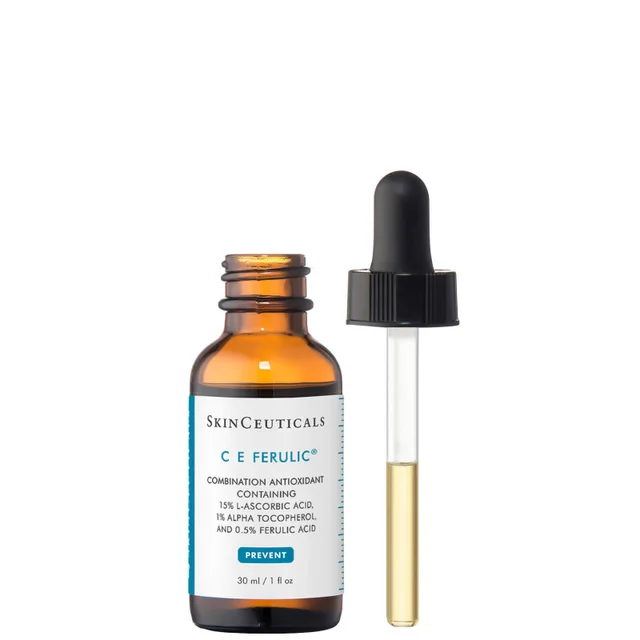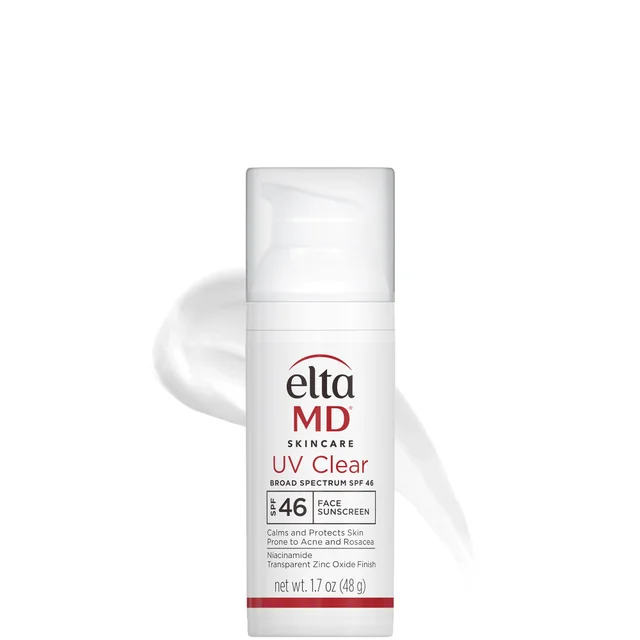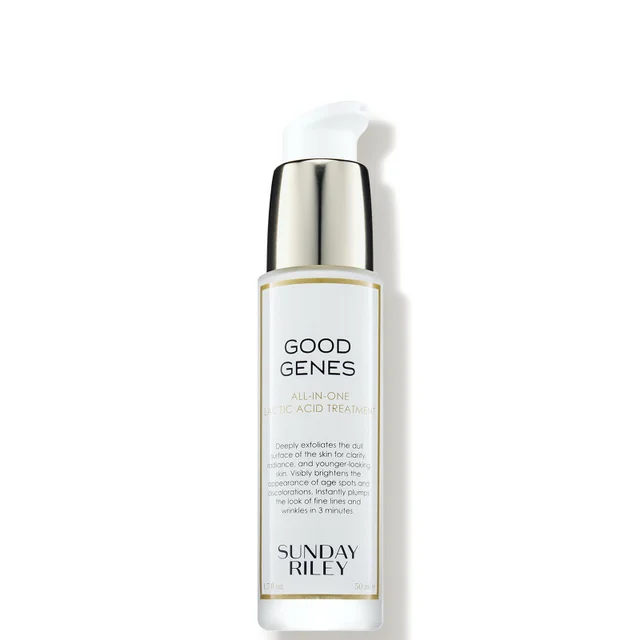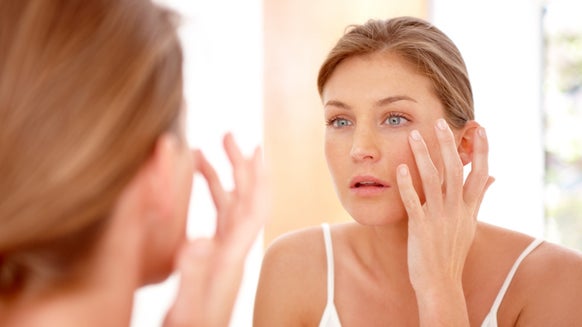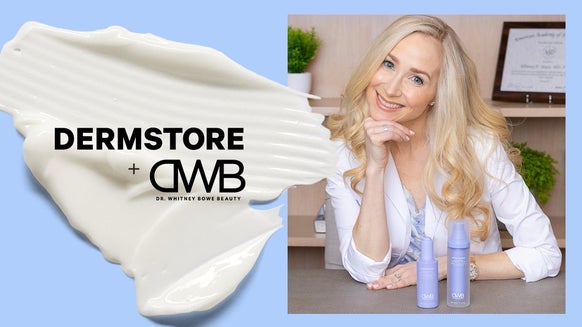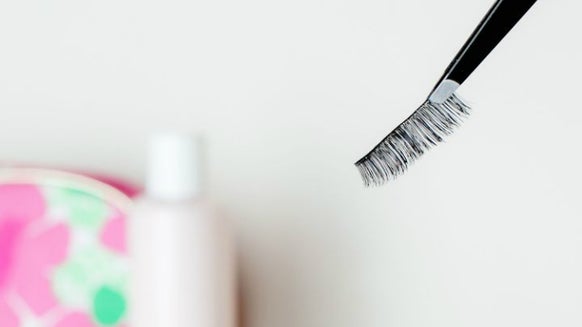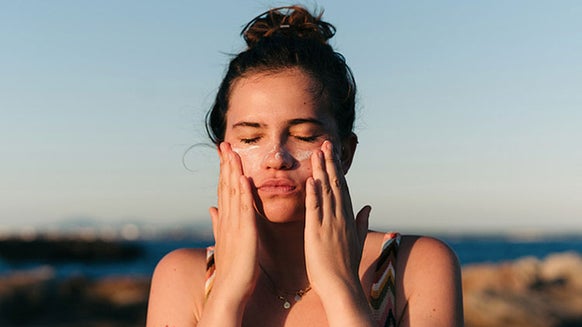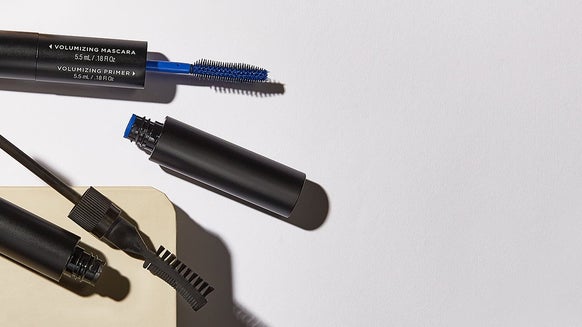8 Common Skin Care Myths, Debunked
Myth #1: You get acne because you don't wash your face.
Though it's a popular myth, it is, indeed, a myth. You won't get acne just because you don't wash your face correctly or frequently enough. In order for acne to develop, you need to have a combination of four factors: clogged pores from shedding keratin/skin cells, sebum, bacteria and inflammation. So, while not washing your face certainly won't help the problem, it's not the sole cause of acne.
Myth #2: Anything marked "natural" or "chemical free" must be better for you than other types of skin care products.
Shauna Dermigny: “This depends on the person. In order to know what is right for you, you must have a proper skin consultation with a qualified and/or licensed professional. Also, things like 'chemical' peels can still be from natural ingredients and great for all skin types.”
It's all about preference and skin type when deciding what ingredients to put on your skin. There is no concrete evidence that parabens and preservatives in skin care are harmful to your skin or body. In fact, without preservatives, skin care and cosmetics are more susceptible to the growth of bacteria, mold and yeast. Should you choose to go the natural route, be sure to pay close attention to expiration dates on your products, as natural products don't last as long as the alternatives.
Myth #3: You'll age faster if you wear makeup regularly.
SD: “I would not say this is true, as long as you properly remove your makeup daily and keep up with a consistent cleansing routine!”
Makeup junkies: It's time to breathe a sigh of relief. Makeup, alone, is not going to make you age faster. In fact, so many double-duty makeup products actually nourish, protect or improve your skin while you're wearing them! However, if you don't wash your face before bed, you're leaving not just the makeup, but the dirt, oil and toxins your skin has collected over the course of the day—which is what really causes aging. Fortunately, you can keep wearing all the makeup you want without a worry—as long as you remove it and cleanse your face at the end of the day.
Myth #4: Washing your face with hot water will open up the pores for a better clean.
SD: “Careful not to wash your face with hot water. Yes, steam will open your pores. Use a hot towel or let your pores open up in the shower or bath. It doesn't have to hurt to work”
You don't need to shock your face with freezing cold water, but a lukewarm—not hot—temperature is ideal. Though a steamy, hot shower or rinse might feel soothing, it could damage your skin by stripping it of its natural, protective barrier and drying it out. A good way to tell if the water you're bathing or cleansing with is too hot? If your skin is red after rinsing, the water you used was too hot.
Myth #5: The harder you scrub/exfoliate, the better.
SD: “No! Again, it doesn't have to hurt to work. Always err on the side of gentle when treating your skin. Scrubbing too hard or too often will cause damage to your skin. Be kind to your skin, and exfoliate only two to three times per week. Just like your muscles when you work them out, your skin needs to recuperate and regenerate.”
We so often want instant satisfaction (it's normal!), and this applies to our skin care routines as well. We want to feel our products working, which is why exfoliating (especially with a scrub) can be so satisfying. However, less is definitely more when it comes to exfoliation. Exfoliating too often "strips your skin of essential moisture and makes your skin more susceptible to infections, clogged pores and free radicals that can lead to unwanted wrinkles in the future,” says dermatologist Dr. Jill S. Waibel.
Myth #6: If it burns, it means it’s working.
SD: “FALSE. If it burns, remove it with a cool damp cloth.”
This is one of the most dangerous myths out there because it almost sounds believable—right alongside "No pain, no gain" or "Beauty is pain." When it comes to skin care, a little tingling is normal (with some products); stinging or burning, however, is not. This type of reaction may indicate that you have sensitive skin, or it could be something more serious like an allergy to an ingredient you're using. If something feels off to you, remove right away. And if the pain or irritation does not subside within a few minutes, contact your dermatologist right away.
Myth #7: Rubbing alcohol will "kill" your acne.
SD: “Rubbing alcohol is much too drying and irritating for skin. In most cases, it will dry you out so much that your skin will overcompensate by producing excess sebum (oil) and clog you up.”
Alcohol is a common ingredient in many skin care products because of its quick-drying abilities. When the right type of alcohol is combined with the right ingredients and in the right concentration, it is considered safe and effective on the skin. However, rubbing alcohol has much too high of a concentration of alcohol, which can break down your skin's barrier and strip it of the natural oils your skin needs. Instead, look for acne fighters containing glycolic acid, benzoyl peroxide, witch hazel or tea tree oil.
Myth #8: You don’t need to moisturize if you have oily skin.
SD: “Not necessarily. Most cleansers will strip the natural oils from your skin, so you will need to replace that protective layer. If you really want to skip steps, try an oil cleanser, like micellar water. It will leave your skin’s pH intact; therefore (for some skin types), you won’t need to apply additional product.”
No matter what your skin type—oily and acne-prone or dry and dehydrated—you need to be using some kind of moisturizer to keep your skin balanced and nourished. The differences lie in the type and amount of moisturizer your skin needs. While oily skin requires the least amount of moisture, a moisturizer is still vital for nourishing and hydrating the skin. When choosing a moisturizer, dermatologist Debra Jaliman, MD advises a lighter product, "such as a hydrating serum or lotion versus a heavy cream."

From the latest hair and makeup trends to the best solutions for your skin issues, we've got all your beauty concerns covered!

